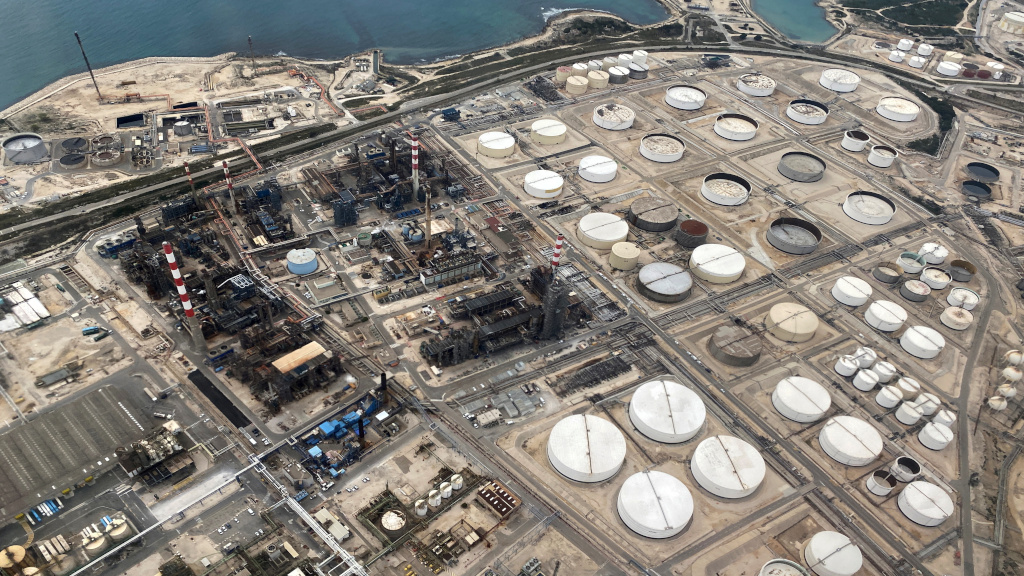Storage tanks are seen at the Petroineos Ineos petrol refinery in Lavera, France, March 29, 2022. REUTERS/Benoit Tessier
LONDON, Jan 15 (Reuters) – Oil prices lost more than 1 % on Monday as the Middle East conflict’s limited impact on crude output prompted profit taking after oil benchmarks gained 2 % last week.
Brent crude futures were down $1.14, or about 1.5%, at $77.15 a barrel by 1250 GMT and U.S. West Texas Intermediate crude lost $1.15, or 1.6%, to $71.53.
Several tanker owners steered clear of the Red Sea and multiple tankers changed course on Friday after U.S. and Britain launched strikes against Houthi targets in Yemen after the Iran-backed group’s attacks on shipping in response to Israel’s war against Hamas in Gaza.
The conflict has also held up at least four liquefied natural gas tankers travelling in the area.
“The realisation that oil supply has not been adversely impacted is leading last week’s bulls to take profit, with the move down somewhat exacerbated by a slightly stronger dollar,” said Tamas Varga of oil broker PVM.
On Sunday the Houthi militia threatened a “strong and effective response” after the United States carried out another strike overnight. The U.S. later said it shot down a missile fired at one of its ships from Yemen.
The chief negotiator for Yemen’s Houthis on Monday warned that attacks on ships headed towareds Israel will continue.
“As the Middle East conflict is currently not affecting oil production, the geopolitical risk premium priced in oil prices now appears modest based on the implied volatility of options,” Goldman Sachs analysts said in a note.
There have been no oil supply losses so far, but the shipping disruption is indirectly tightening the market by keeping 35 million barrels at sea owing to longer journeys shippers have to take to avoid the Red Sea, Citi analysts wrote.
Source: Reuters, 15th January 2024
 afric-Invest
afric-Invest